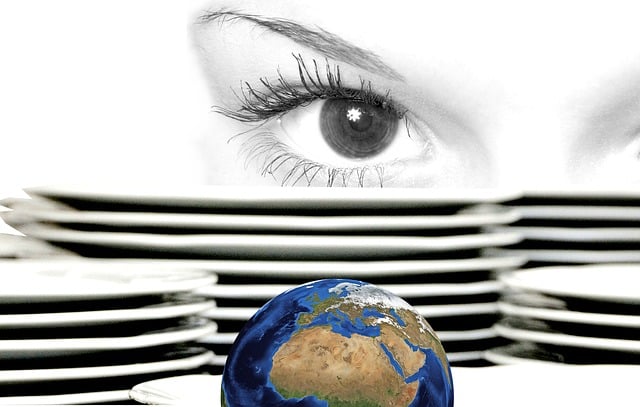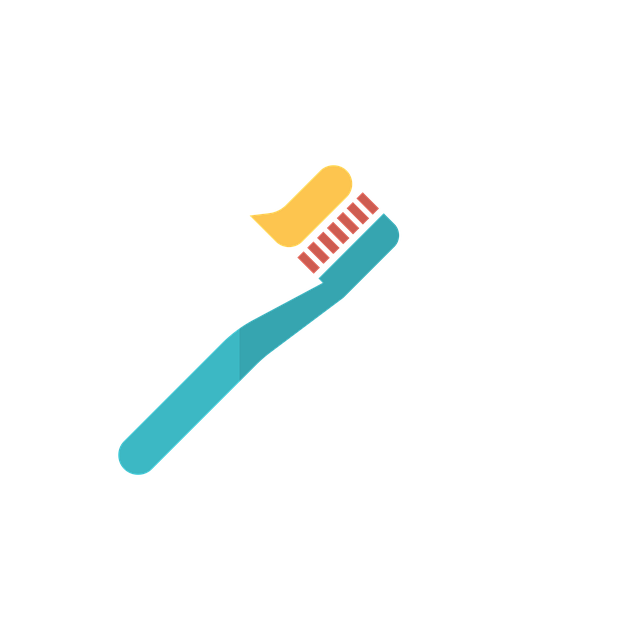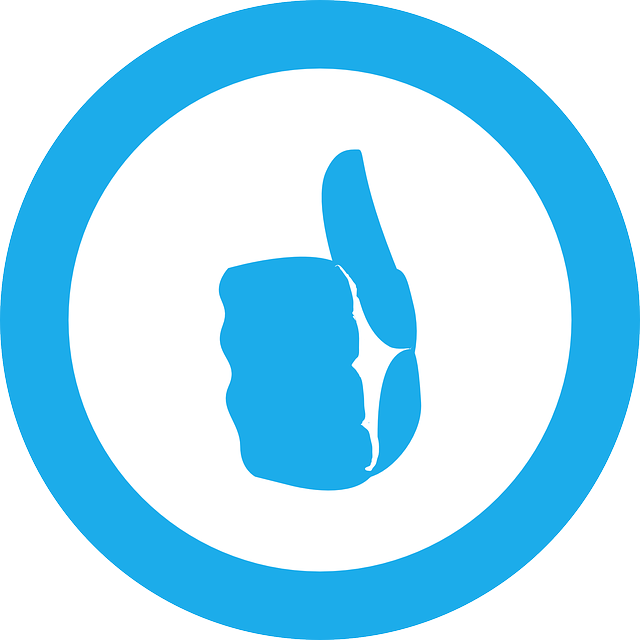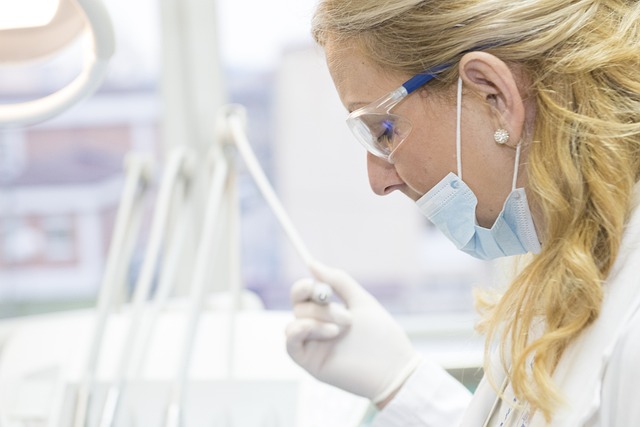What Mouthwash is Safe for Post-Tooth Extraction? Find Out!
Welcome to our ????informative article where we will unravel the mystery of selecting a safe mouthwash ????after a tooth extraction. If you’ve recently undergone this common dental procedure, you may be wondering which oral rinse is best suited for your healing gums. Fear???? not! In the following paragraphs, we will provide you with all the essential information you need, guiding you towards a mouthwash solution that not only promotes a speedy recovery but will leave you feeling fresh ????and revitalized. So, let’s dive in and discover the ????safest options for your post-tooth extraction journey!
1. Understanding the Importance of Mouthwash after Tooth Extraction
Mouthwash plays a crucial role in the healing process after a tooth extraction and???? should not???? be overlooked. Here are a few reasons why mouthwash is important???? for proper oral care post-extraction:
1. Reduces the risk of infection: After a tooth extraction, the ????site is susceptible to bacteria and germs, ????which can lead to infection. Using a mouthwash with???? antiseptic properties helps kill these harmful microorganisms, reducing the risk of infection.
2. ????Promotes oral hygiene: Mouthwash helps maintain oral???? hygiene by reaching areas that are often missed during brushing and ????flossing. It removes food particles, plaque, and bacteria???? from???? the oral cavity,???? ensuring a clean and healthy???? mouth.
While it’s essential to understand the importance of mouthwash, it’s equally important to use it correctly. Follow these tips when using mouthwash after tooth extraction:
- Wait at least 24 hours after the extraction before using mouthwash to allow the blood clot to form properly.
- Dilute the mouthwash if???? it is too strong, as ????some mouthwashes can irritate the extraction site.
- Rinse your mouth gently with the mouthwash for the recommended time mentioned on the bottle, usually???? around 30 seconds to one minute.
- Do not rinse???? your mouth???? vigorously or spit forcefully, as this???? may dislodge the blood clot and delay the healing process.
- Limit???? the???? use of mouthwash to???? the recommended???? frequency provided by your???? dentist ????or oral surgeon.
By understanding the importance of mouthwash and following the provided guidelines, you can aid in ????the healing???? process after a tooth extraction and ensure good oral hygiene. Always consult???? your dentist for personalized advice specific to your dental health.

2. ????The???? Role of Mouthwash in Promoting Healing after a Tooth Extraction
Mouthwash can play a ????crucial role in promoting healing after a tooth extraction. It helps maintain oral hygiene, reduces the risk of infection, ????and provides soothing relief to the affected area. Here are some ways???? in which mouthwash aids in the healing process:
-
- Eliminates bacteria: After a tooth extraction, bacteria can easily accumulate in the open socket. Using an ????antiseptic mouthwash helps eliminate these harmful bacteria, reducing the risk of infection.
- Reduces inflammation: Mouthwash containing???? ingredients such as hydrogen ????peroxide or???? chlorhexidine can help reduce inflammation around the extraction ????site.???? This aids in faster healing and alleviates discomfort.
- Keeps the mouth clean: Gently rinsing with???? an antibacterial mouthwash after a tooth extraction ensures that debris and???? food particles are removed from the area, preventing further complications or complications in the healing process.
It’s important to choose a mouthwash that is ????specifically labeled as suitable for post-extraction use. Look for a formula that is alcohol-free, as alcohol can cause ????irritation and delay healing. Always follow the instructions provided by your dentist or oral surgeon for the timing and frequency of mouthwash use after a tooth extraction. Remember, mouthwash is a supportive measure and should not replace proper ????oral hygiene practices such as brushing ????and flossing. Be sure to consult ????your ????dentist if you???? have any questions or concerns about using mouthwash???? to promote healing after a ????tooth ????extraction.
3. What Post-Tooth Extraction Mouthwash Options are Safe and Effective?
After a tooth extraction, it’s crucial to take proper care of your mouth to prevent infection and promote healing. One effective way to maintain oral hygiene during this time is by ????using a suitable mouthwash. Here are some safe and effective options to???? consider:
1. Antiseptic Mouthwash: This type of mouthwash contains ingredients???? like chlorhexidine or ????cetylpyridinium chloride, which help reduce bacteria and prevent infection. It’s recommended to use an antiseptic mouthwash after a tooth extraction, as it ????can flush out any remaining debris and soothe the area. Remember to follow the instructions on the bottle for optimal???? usage.
2. Saltwater Rinse: Creating a saline solution is a natural and cost-effective way to cleanse your ????mouth after an extraction. Simply ????dissolve half a teaspoon ????of salt in eight???? ounces of warm water. Gently swish the solution around your mouth for about 30 seconds, then ????spit it out. Saltwater rinses???? help reduce swelling, soothe discomfort, and keep the area clean. You can repeat this process multiple times a day until your mouth ????heals. ????
4. Choosing ????the Right Mouthwash: Key Factors to Consider after???? Tooth Extraction
If you’ve recently undergone a tooth extraction, it’s essential to choose the right mouthwash for optimal???? healing ????and oral health. There are a few key ????factors to consider when selecting the most suitable mouthwash for post tooth extraction care:
-
- Alcohol-free: Opt for an alcohol-free mouthwash to avoid irritation and dryness, as???? alcohol can cause???? discomfort and delay the???? healing process.
- Antibacterial properties: Look for a mouthwash that contains antibacterial ingredients, ????such as chlorhexidine or cetylpyridinium chloride. These???? help reduce the risk of???? infection and promote faster healing.
- Non-staining: To prevent any???? potential discoloration of your teeth or the extraction site, choose a non-staining mouthwash. This will help maintain a vibrant smile throughout the healing process.
????
Additionally, consult your dentist or???? oral surgeon before selecting a mouthwash. They can provide personalized recommendations based on your specific case, ensuring you choose the most appropriate ????product for your needs. Remember, taking proper care after tooth extraction is ????vital ????for a swift ????recovery and to avoid any ????potential complications, so make sure to choose a mouthwash that caters to your post-extraction requirements.
If you have recently undergone a dental extraction, proper oral care is crucial for???? a smooth and ????speedy recovery. One way to supplement your oral hygiene routine is to incorporate a mouthwash that is specifically designed for post-extraction care. When selecting a mouthwash, be sure ????to look ????for the following recommended ingredients: In addition to these key ingredients,???? it is important to choose a mouthwash that is alcohol-free. Alcohol can cause irritation and delay the healing???? process. Remember to follow the instructions provided by ????your???? dentist or ????oral ????surgeon for the???? frequency and duration of mouthwash ????use. When it comes to oral care during???? the healing process, using the right mouthwash can make ????a big difference. Alcohol-free mouthwashes are an excellent alternative to traditional options, as they???? offer a safer ????and more gentle healing process. Here are???? a few reasons???? why alcohol-free mouthwashes are worth considering:

6. Exploring Alcohol-Free Mouthwash Options for a Safer Healing Process
????
Furthermore, alcohol-free mouthwashes are just as effective as their alcohol-containing counterparts in eliminating bacteria, freshening breath, and ????maintaining overall oral hygiene. By incorporating an alcohol-free???? mouthwash into???? your healing routine, you can prioritize your oral health without compromising on comfort and safety.
7. Natural and Herbal Mouthwash Alternatives for Gentle Post-Extraction Care
If ????you’ve recently had a tooth extracted, taking???? care of your mouth during the healing process is ????crucial. While traditional mouthwashes can be too harsh and irritating for the sensitive area, there are natural and herbal alternatives that can offer gentle post-extraction care. These remedies???? can help reduce discomfort, fight off bacteria, ????and aid in the ????healing???? process.
1. Saltwater rinse: Mixing half a teaspoon of ????salt with ????warm water creates a soothing mouth rinse. Gently swish the solution around your mouth for 30 seconds, then spit it out. This simple yet effective remedy can help alleviate ????pain and reduce inflammation post-extraction.
2. Chamomile tea rinse: Brew a cup of chamomile???? tea, allow it to cool, and swish it around your???? mouth for 30 seconds before spitting ????it out. Chamomile???? has anti-inflammatory and antimicrobial properties, which can aid in the healing process and reduce the risk of infection.
8. How Prescription ????Mouthwash Can Help Ensure ????Optimal Healing after???? Tooth Extraction
After a tooth extraction, proper care and maintenance are vital for optimal healing. One step you can???? take to ensure a smooth recovery is to incorporate prescription mouthwash into your post-extraction???? routine. While over-the-counter mouthwashes may provide ????temporary relief, prescription mouthwashes offer several unique benefits.
First and foremost, prescription mouthwashes ????contain ????specialized ingredients that aid???? in???? the healing process. These ingredients, ????such ????as chlorhexidine gluconate, have powerful antibacterial properties that help prevent infection and???? promote faster healing. By using a prescription mouthwash, you can significantly reduce the???? risk of???? complications and ensure a successful recovery. Additionally, the formulation of prescription mouthwashes is often tailored to address???? specific oral conditions or concerns, providing personalized care that over-the-counter alternatives cannot match. Your dentist will prescribe a mouthwash ????that suits your needs, targeting issues like ????dry socket prevention or reducing???? inflammation, for???? a more effective and comfortable???? healing experience.
9. Step-by-Step Guide: How to Properly Use Mouthwash after Tooth???? Extraction
Using mouthwash after ????a???? tooth???? extraction is an essential part of the post-operative care to promote healing and???? prevent ????infections. ????Follow these step-by-step instructions to ensure you are properly using mouthwash for optimal results:
1. Wait???? for the appropriate time: It???? is crucial to wait for ????at least 24 hours after???? your tooth extraction???? procedure before using any mouthwash. This???? allows for the formation of a blood clot, which ????is necessary for the healing process.
2. Choose the ????right mouthwash: Selecting an appropriate mouthwash???? is vital. Look for an alcohol-free product that is specifically designed for post-operative care or one recommended by your dentist. Alcohol-based mouthwashes can delay healing and cause discomfort.
3. Dilute the mouthwash if necessary: If the mouthwash is too strong or causes an uncomfortable sensation, you can dilute it with water. Follow the instructions on the mouthwash bottle to determine the appropriate dilution???? ratio.
4. Gently rinse your mouth: Take a small sip of the mouthwash and gently swish???? it around your mouth for about 30 seconds. Make???? sure???? the???? mouthwash reaches all???? areas, including the extraction site.
…
10. Frequently Asked Questions about Post-Extraction Mouthwash Answered
In this section, ????we???? have compiled???? some frequently asked questions about post-extraction mouthwash to help address any concerns you may have. Take a look at the following answers to gain a better understanding of ????how post-extraction mouthwash can benefit you during your recovery:
1. What is post-extraction mouthwash?
Post-extraction mouthwash is a specialized oral rinse designed to promote healing and???? prevent infection following a ????tooth extraction procedure. It typically contains antiseptic properties???? to fight off bacteria and reduce the ????risk of complications.
2. How soon should I start using post-extraction mouthwash?
It’s ????generally recommended to wait 24 hours after your tooth extraction before???? using post-extraction mouthwash. This ????allows the blood clot to form ????and stabilize, reducing the risk of dislodging it. Your dentist will provide specific instructions based on your individual case.
3. Can I use regular mouthwash instead?
Regular mouthwash may not provide the same benefits as post-extraction mouthwash. The specialized formula of post-extraction mouthwash helps accelerate the ????healing process, reduce swelling, and prevent infection. It’s best to choose a mouthwash specifically designed for post-extraction use for ????optimal results.
4. How often???? should I use post-extraction mouthwash?
Your???? dentist???? will provide???? instructions on how often to use post-extraction mouthwash.???? Typically, it’s recommended to rinse with the mouthwash two to three times a day, after meals, for about a week or as instructed. Be sure to follow the recommended usage for the best outcomes.
Q: Why is using mouthwash important after a tooth extraction?
A: Using mouthwash is ????important after a tooth extraction???? because it helps maintain???? proper oral hygiene ????and prevents infection. Mouthwash can effectively kill bacteria and reduce the risk of developing complications in???? the extraction site.
Q: What kind of mouthwash should be used after a tooth extraction?
A: It is recommended to ????use an alcohol-free mouthwash after a tooth extraction. Alcohol-free???? mouthwash is gentler on the gums and less likely to cause irritation or dryness. Look for mouthwashes with antimicrobial properties, like ????chlorhexidine, which can???? help kill bacteria and ????promote healing.
Q: When should I start using mouthwash after a tooth extraction?
A: It is???? best to wait for at least 24 hours???? after ????the tooth extraction before using mouthwash. This ????allows the blood clot to form and???? stabilize, reducing the risk of???? developing dry socket. Consult with your dentist to determine the exact timeframe as it may vary depending on the individual case.
Q: How should I ????use mouthwash after a tooth extraction?
A: To use mouthwash after a tooth extraction, follow these steps:
1. Sip a small amount of mouthwash into your mouth,???? ensuring it covers the extraction site.
2. Gently swish the mouthwash around for 30 seconds or as indicated on the product label.
3. Spit out the mouthwash into the sink, ensuring none of it goes ????down the throat.
4. Repeat this process once or twice as advised by your dentist.
Q: Are there any precautions to consider while using mouthwash post-tooth extraction?
A: Yes, there are a few precautions to???? keep in mind. Avoid rinsing or spitting forcefully, as it can disrupt the blood clot and delay healing. Also, be cautious of mouthwashes that contain alcohol, ????as they can???? cause dryness and???? irritation. If you experience any discomfort, swelling, or unusual symptoms, contact your dentist for further???? guidance.
Q: How frequently should I use mouthwash after a tooth extraction?
A: Follow the instructions provided by???? your dentist for the specific mouthwash you are using. In general, rinsing with mouthwash after meals or at least twice a day is recommended to maintain oral hygiene. However, always ????consult with your dentist to ensure you are following the right frequency for your individual case.
Q: Can I???? use any over-the-counter mouthwash after a ????tooth ????extraction?
A: While there are many over-the-counter ????mouthwashes available, not all of them are suitable for post-tooth ????extraction care. Look for a???? mouthwash specifically labeled as alcohol-free and preferably containing antimicrobial properties. It’s always best to consult with your dentist prior to use to ensure the product is safe and appropriate for your recovery process.
Q: How ????long should I continue using mouthwash after a tooth extraction?
A: The duration of mouthwash use after a tooth extraction may vary depending on the individual and the ????healing process. Your dentist will provide guidance on when to discontinue mouthwash or switch to a different oral hygiene routine. It is???? generally recommended???? to use mouthwash for???? at least a week or as directed by your dental???? professional.
Q: Is mouthwash???? the only way to maintain oral hygiene after a tooth extraction?
A: No, mouthwash ????is not the only way to maintain oral hygiene after a tooth extraction. It is ????an???? important component, but it should be complemented with other measures such as gentle brushing,???? avoiding the extraction site, and rinsing with saltwater. Maintaining good oral hygiene is crucial???? for ????proper healing and preventing complications. Consult with your dentist for a comprehensive oral care routine post-extraction. In conclusion, choosing the right mouthwash after a tooth extraction is imperative for a speedy and safe recovery. Remember, opting for ????a gentle and alcohol-free???? rinse will help???? protect the delicate tissues ????surrounding the extraction???? site and promote healing. While there are numerous mouthwash options ????available, be sure to look for products specifically designed for post-tooth extraction care, as they often contain beneficial ingredients like antimicrobial agents. Always consult ????with???? your dentist or???? oral surgeon for their recommendation, as they can provide you with the best???? guidance based on your individual needs. By maintaining a






